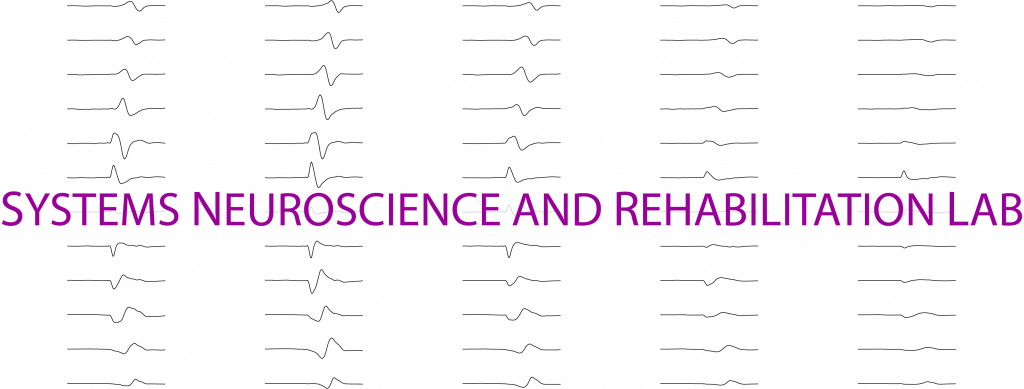
About Us
In the Systems Neuroscience and Rehabilitation Lab at the Washington University School of Medicine, we study neural control of voluntary movement in the intact nervous system and after neurological injury or disease. The primary way we do so is through study of the motor unit, the key structure that transforms neural commands that converge upon it in the spinal cord into motor output through the generation of muscle force. We use a novel reverse engineering approach applied to motor unit population discharge to study voluntary motor commands at the end-stage of central nervous system processing where motor commands are most relevant to movement. In this way, we can capture contributions to motor processing not only from the brain, but also from the brainstem, spinal cord, and a-motoneuron—structures that are implicated after neurological injury but are often overlooked in human neurorehabilitation.
Our translational work is focused on identifying pathological neural control of movement, determining how it relates to specific clinical motor deficits, and investigating how it can be targeted to improve the efficacy of neurorehabilitation interventions. We also explore fundamental aspects of neural control of movement in the intact nervous system.
Our overall goal is to advance the physical ability of people with neurological injury or disease by informing the development of rehabilitation interventions that are rooted in nervous system pathophysiology and personalized for individual patients based on the specific functionality of their nervous systems.
The Systems Neuroscience and Rehabilitation Lab is directed by Laura McPherson, PT, DPT, PhD.